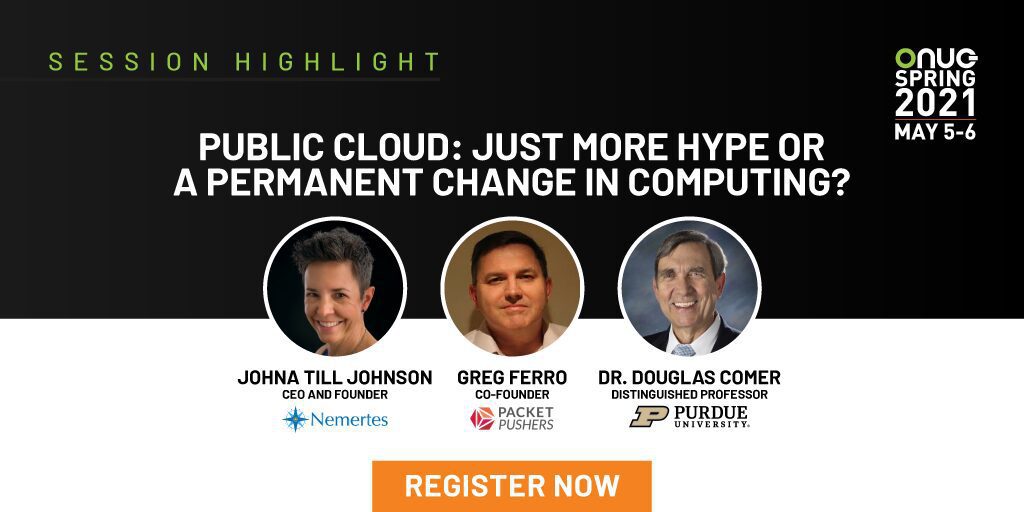
The Future of Network Management
Our invited panel, researchers from academia and industry, will examine and
discuss the viability of AI techniques, especially Machine Learning (ML)
in automating network management. We discuss how ML can help operators in
situations in which a network must detect and recover rapidly from failures
and attacks as well as in managing large networks that require frequent
reconfiguration (e.g., a public or private cloud data center. We also
discuss whether operators from the industry find the risk of running ML for
such operations acceptable and what guarantees they will need to see before
using these solutions in practice.
Dr. Douglas E. Comer is a Distinguished Professor of Computer Science at Purdue University. Formerly, he served as VP of Research at Cisco Systems. As a member of the original IAB, he participated in early work on the Internet, and is internationally recognized as an authority on TCP/IP protocols and Internet technologies.
Dr. Comer has written a series of best-selling technical books on Computer Networks, Internets, Operating Systems, and Computer Architecture. His 3-volume Internetworking series is cited as an authoritative work on Internet protocols and technologies. Dr. Comer’s books have been translated into 16 languages, and are used in industry and academia in many countries.
Dr. Comer consults for industry, and has lectured to thousands of professional engineers and students around the world. For twenty years he was editor-in-chief of the journal Software – Practice and Experience. He is a Fellow of the ACM and the recipient of numerous teaching awards.
I am a senior researcher at Microsoft Research in the Mobility and Networking group. I got my PhD in computer science from the University of Pennsylvania in 2017 working with my advisors Prof. Boon Thau Loo and Prof. Roch Guerin. I completed my dual masters degree in computer science and electrical engineering at the University of Pennsylvania in the same year. I completed my B. Sc. in Electrical Engineering at Sharif University of Technology in 2010. My work mainly focuses on automated network management and data center networking.
Jeff Mogul works on fast, cheap, reliable, and flexible networking infrastructure for Google. Until 2013, he was Fellow at HP Labs, doing research primarily on computer networks and operating systems issues for enterprise and cloud computer systems; previously, he worked at the DEC/Compaq Western Research Lab. He received his PhD from Stanford in 1986, an MS from Stanford in 1980, and an SB from MIT in 1979. He is an ACM Fellow. Jeff is the author or co-author of several Internet Standards; he contributed extensively to the HTTP/1.1 specification. He was an associate editor of Internetworking: Research and Experience, and has been the chair or co-chair of a variety of conferences and workshops, including SIGCOMM, OSDI, NSDI, USENIX, HotOS, and ANCS
Nick Feamster is Neubauer Professor of Computer Science and the Director of Center for Data and Computing (CDAC) at the University of Chicago. Previously, he was a full professor in the Computer Science Department at Princeton University, where he directed the Center for Information Technology Policy (CITP); prior to Princeton, he was a full professor in the School of Computer Science at Georgia Tech.
His research focuses on many aspects of computer networking and networked systems, with a focus on network operations, network security, and censorship-resistant communication systems. He received his Ph.D. in Computer science from MIT in 2005, and his S.B. and M.Eng. degrees in Electrical Engineering and Computer Science from MIT in 2000 and 2001, respectively. He was an early-stage employee at Looksmart (acquired by AltaVista), where he wrote the company’s first web crawler; and at Damballa, where he helped design the company’s first botnet-detection algorithm.
Nick is an ACM Fellow. He received the Presidential Early Career Award for Scientists and Engineers (PECASE) for his contributions to cybersecurity, notably spam filtering. His other honors include the Technology Review 35 “Top Young Innovators Under 35” award, the ACM SIGCOMM Rising Star Award, a Sloan Research Fellowship, the NSF CAREER award, the IBM Faculty Fellowship, the IRTF Applied Networking Research Prize, and award papers at ACM SIGCOMM (network-level behavior of spammers), the SIGCOMM Internet Measurement Conference (measuring Web performance bottlenecks), and award papers at USENIX Security (circumventing web censorship using Infranet, web cookie analysis) and USENIX Networked Systems Design and Implementation (fault detection in router configuration, software-defined networking). His seminal work on the Routing Control Platform won the USENIX Test of Time Award for its influence on Software Defined Networking.
A member of Azure’s Physical Network team, which is responsible for developing, deploying, and operating the software and network devices that connect the servers of Microsoft’s largest services, including the Azure Public Cloud and Bing. He is responsible for building solutions for Network Health and Auto Mitigation at scale.























